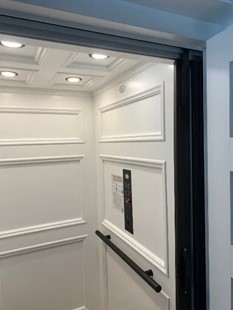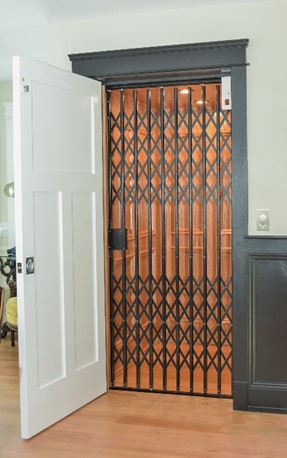
For homeowners in hurricane-prone areas, safeguarding property from potential storm damage is a top priority. While windows, roofs, and basements often receive the most attention, home elevators are equally vulnerable to strong winds, flooding, and power outages. Elevator companies in Florida emphasize the importance of protecting some of the overlooked aspects of a home, such as the elevator, from hurricane storm damage to ensure both functionality and the safety of everyone in the household. This article highlights a few key strategies for safeguarding your home elevator during hurricanes and offers guidance on how to prepare for potential damage before it occurs.
Hurricanes bring a variety of risks, from flooding to power surges. Flooding, especially in coastal areas or homes with elevators installed in basements or lower levels, can damage electrical components, including the control systems, drive mechanisms, and safety sensors. Power surges during storms can also disrupt the electrical circuits of an elevator, leading to expensive repairs or even rendering the system inoperable.
In addition, high winds and flying debris can cause structural damage to the shaft or mechanical systems, particularly if parts of the home are exposed to the elements. Homeowners need to be proactive in protecting these systems, both from the short-term impacts of a storm and the long-term costs of repair or replacement.
One of the biggest threats hurricanes pose is the risk of flooding. Elevators, especially those that operate in lower levels of a home, are highly susceptible to water damage. Installing flood-resistant barriers can be an effective way to prevent water from entering the elevator shaft and damaging its machinery.
Waterproof barriers, flood gates, or other protective mechanisms around the perimeter of your elevator system can act as a buffer during severe weather. Additionally, ensure that drainage systems are functioning properly and that sump pumps are in place to divert water away from the elevator area.
To further reduce the risk of flood-related damage, it’s important to elevate the most sensitive parts of your elevator system, including control panels and electrical systems. If these critical components are located near ground level, they are more susceptible to water damage.
Work with a qualified elevator technician to relocate or elevate essential equipment so it remains protected even if the lower levels of your home experience flooding. This is a particularly important step for homes with hydraulic elevators, which often have mechanical components installed in lower-level rooms.
Routine maintenance is essential to ensure that your elevator is in optimal condition and ready to withstand the stresses of hurricane season. Regularly inspect the system for any wear and tear, especially in areas prone to corrosion or rust, which could weaken the elevator's ability to function during a storm.
Work with a certified technician to schedule regular inspections of the elevator’s electrical and mechanical components. Maintenance should include checking for proper lubrication of parts, inspecting the condition of seals and gaskets, and ensuring that the elevator’s backup power systems are working effectively.
Power outages are common during hurricanes, and if your home experiences an extended loss of electricity, your elevator may become non-operational. Installing a backup power supply, such as an emergency generator or a battery backup system, can help keep the system functional during a power outage.
A generator ensures that your elevator continues to run, allowing safe transport between floors during an emergency. Be sure to test the backup power system regularly and ensure it is capable of sustaining the elevator’s energy needs for the duration of any power outages.
Power surges caused by lightning strikes or downed power lines during a hurricane can seriously damage your entire home’s electrical system. Installing a surge protector for your home, especially the elevator’s electrical circuit is a critical safeguard that can prevent costly damage.
Additionally, a surge protection system should be installed not only on the elevator's power line but also on the lines that connect to the control panel and motor. This will minimize the chances of a power surge damaging key components of the elevator’s operation.
Strong winds and flying debris can damage the exterior of your home, and the elevator shaft is no exception. It’s important to inspect the elevator shaft for any signs of weakness or potential vulnerabilities, particularly around the seals of the doors and walls.
Before hurricane season begins, reinforce your elevator’s shaft and doors to ensure they are capable of withstanding high winds. This might include installing stronger seals, ensuring that the doors are properly aligned, and reinforcing the shaft with hurricane-resistant materials.
For additional peace of mind, consider installing a remote monitoring system that alerts you to any issues with your elevator during a storm. These systems can provide real-time updates on the status of your elevator’s operation, alerting you if there are any power failures, mechanical malfunctions, or security breaches.
Remote monitoring systems allow you to keep an eye on your elevator even if you’re away from home, providing the opportunity to act quickly in the event of a problem.
Even with all the precautions in place, it's essential to inspect your home immediately after a hurricane. Look for any signs of water damage, especially around the elevator and the electrical components. If your elevator was exposed to water or suffered a power surge, it's important to contact a certified technician for an inspection and repairs.
Do not attempt to use the elevator if you suspect damage, as doing so could put you at risk of injury. Only resume using the elevator after a professional confirms that it is safe to operate.

Hurricanes can cause extensive damage to home elevators, but with the right precautions, homeowners can significantly reduce the risk. From installing flood barriers and backup power supplies to conducting regular maintenance, taking these steps will protect your elevator system from storm-related damage. By safeguarding this vital part of your home, you’ll not only save on costly repairs but also ensure the safety and convenience of your household during and after severe weather events.